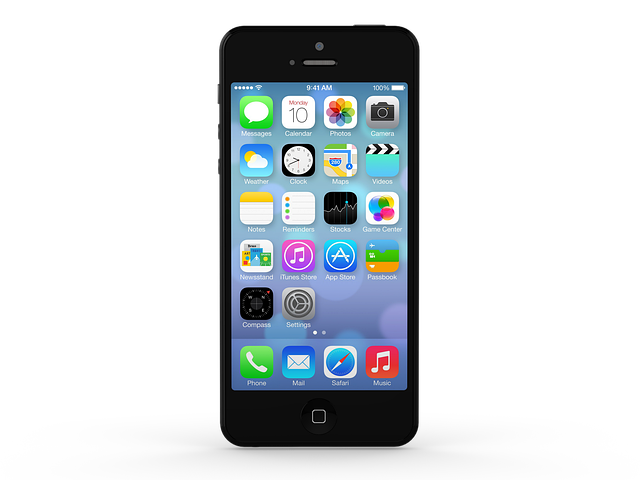In New Jersey, robocalls are regulated by laws like the TCPA, offering legal recourse against unauthorized calls. Individuals can sue for damages and consult specialists to understand their rights regarding Can I Sue For Robocalls New Jersey. Mitigation steps include registry registration and carrier tools, with legal action advised for persistent issues.
“In today’s digital age, robocalls have become a ubiquitous yet often unwanted aspect of daily life. New Jersey residents now face a surge in automated phone calls, raising concerns about privacy and harassment. This comprehensive guide aims to demystify the world of robocalls within the state. We’ll explore their legal definition, regulatory framework, common types, and practical steps to mitigate disturbance. Furthermore, we delve into the question: can you sue for robocalls in New Jersey? Get ready to navigate this modern-day enigma and protect your rights.”
Legal Definition of Robocalls in New Jersey
In New Jersey, a robocall is defined as an automated telephone call that uses pre-recorded or artificial voice messages to deliver marketing, informational, or promotional content to individuals. These calls are often used for mass communication and can be a nuisance, especially when they are unsolicited and unwanted. According to state laws, residents have the right to privacy and protection from excessive robocalls.
The legal definition allows New Jersey citizens to take action against companies or organizations that engage in abusive or fraudulent robocall practices. If you feel you’ve received an illegal robocall, you may consider suing for damages. The Can I Sue For Robocalls New Jersey question is a common concern among residents, and understanding your rights is essential. By knowing the legal boundaries, individuals can protect themselves from unethical call practices and seek compensation if necessary.
Who Regulates and Enforces Robocall Laws?
In New Jersey, the regulation and enforcement of robocall laws are overseen by several entities to protect residents from unwanted automated calls. The Federal Communications Commission (FCC) plays a pivotal role in establishing national standards for robocalling practices. At the state level, the New Jersey Division of Consumer Affairs is responsible for investigating and addressing consumer complaints related to robocalls.
If you’ve received harassing or fraudulent robocalls, you may have legal recourse. The Telephone Consumer Protection Act (TCPA) allows individuals to sue for damages if they can demonstrate that they were called using an automatic dialing system without their prior consent. This includes cases where robocalls violate New Jersey’s consumer protection laws. If you believe you’ve been wrongfully targeted by robocalls, consulting with a legal professional who specializes in telecommunications law is recommended to explore your Can I Sue For Robocalls New Jersey options.
Types of Robocalls and Their Legality
Robocalls, automated telephone calls delivered en masse, often come with legal implications, especially when they are unwanted or fraudulent. In New Jersey, as in many states, robocalls are regulated to protect consumers from nuisance and deceptive practices. The Telephone Consumer Protection Act (TCPA) prohibits automated calls made to personal devices without prior express consent, except for specific exceptions like collection activities or messages from non-profit organizations.
Knowing your rights regarding robocalls is crucial. If you believe you’ve received a robocall in violation of these regulations, you may have the option to take legal action. The TCPA allows recipients to sue for damages if they can prove the call was unwanted and violated their privacy. Therefore, if you’re considering whether to “Can I Sue For Robocalls New Jersey,” understanding your rights under federal law is a key step in deciding your next course of action.
Steps to Take If You're Being Bothered by Robocalls
If robocalls are causing a disturbance in your New Jersey home, there are several steps you can take to mitigate the issue. First, consider registering your number on the National Do Not Call Registry, which can help block calls from known telemarketers and political organizations. Additionally, many phone carriers offer call-blocking features or apps that can further reduce the number of robocalls you receive.
For persistent issues, consulting with a consumer protection lawyer in New Jersey is advisable. You may have grounds to take legal action, especially if the calls are causing emotional distress or financial harm. In some cases, individuals have successfully sued for damages related to unwanted robocalls, so exploring your Can I Sue For Robocalls New Jersey options could be beneficial.
Can I Sue for Robocalls in NJ?
In New Jersey, robocalls are regulated by state and federal laws, such as the Telephone Consumer Protection Act (TCPA). If you’ve received a robocall, you may be wondering if you have legal recourse. The good news is that yes, you can sue for robocalls in New Jersey. If the call was made without your prior consent—a common violation—you could be entitled to damages. These can include monetary compensation for each unauthorized call, as well as attorney fees and court costs.
To take legal action, gather evidence such as call records and any communications related to the robocall. Contacting a consumer protection lawyer specializing in TCPA cases is also advisable. They can guide you through the process, help determine if the case is strong, and potentially negotiate a settlement on your behalf. Remember, taking action against robocallers not only protects your rights but also helps deter future unwanted calls.






